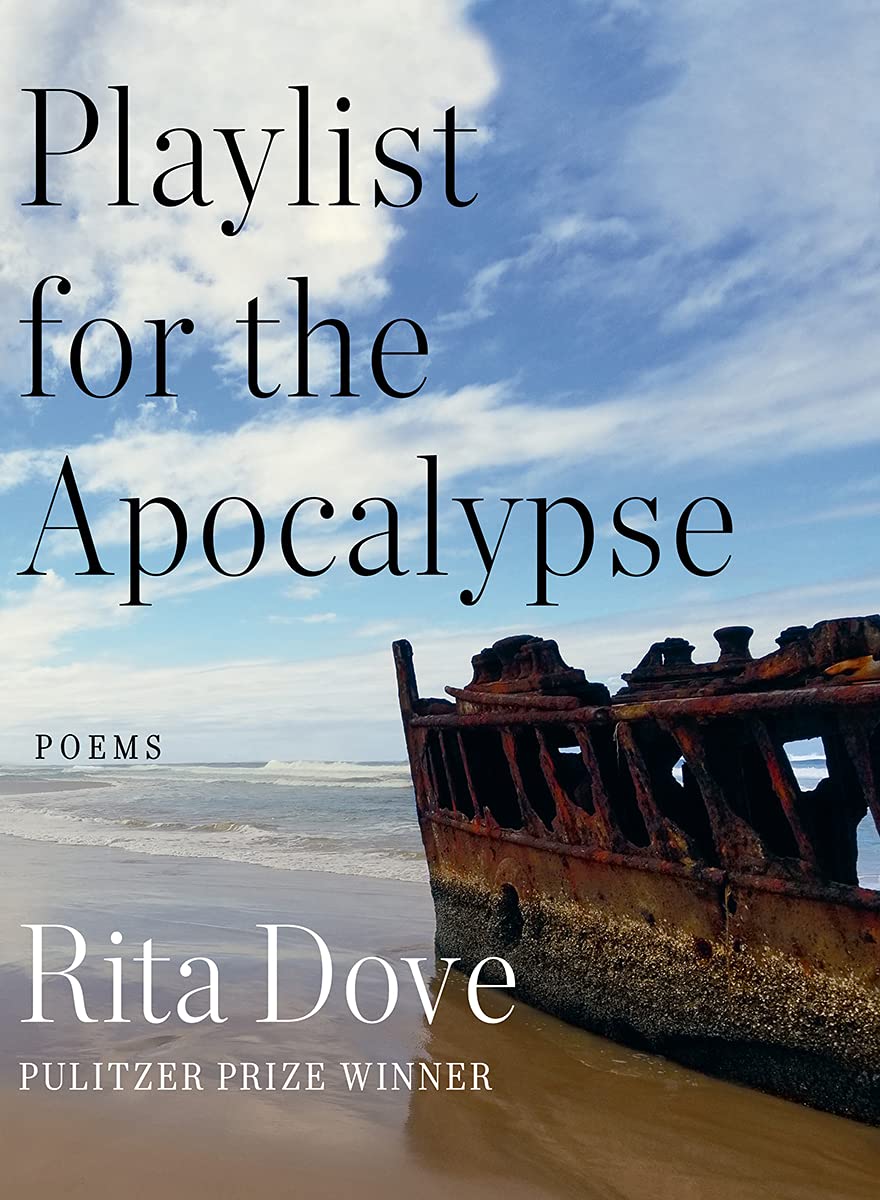You might ask, “Who reads poetry?” My answer to that would be, “I do!” Just the other day, I was reading an interview with Rita Dove in The New York Times that raised my interest to go and purchase her latest book of poetry, Playlist for the Apocalypse, which happens to be just released — her very first volume of poems after twelve years. To get the book, I actually walked into a book store and asked for it. The experience of being surrounded with aisles and aisles of books was almost surreal and made me feel nostalgic. I thought to myself, “It’s just like the way it used to be!” Standing there, holding the book by Rita Dove in my hands, I thought, “What a special feeling it is, holding a book of my choice and carrying it around with me like a valuable possession.” The relationship I create with each book is like going on a journey with it — getting really close and, at times, even finding a new best friend. When it is time to say our goodbyes, it feels like I am departing with someone who revealed to me everything she knew, all her untold secrets, which I listened to and took in whole-heartedly, and now, the time has come that we should say farewell.
Walking out of the book store carrying Rita Dove’s book, I was thinking about how reading poetry is something which is not really essential for anybody, but for me, it’s like having a delicious dessert after my meal. I always try to take my time to savor it and keep the memory somewhere safe in a special file where I store all “the wonderful things in my life.” How one reads a poem is very personal. It’s like how you take your coffee, cream or no cream with sugar or none. I usually read my favorite poems once, and then I read them over and over again. I fold and store them safely in a drawer space of my mind so I can take them out as needed and reread them. By rereading them, I sort of attain tranquility and a sweet sense of peace. At times when I am driving, taking a shower, or doing my everyday chores, I read them in the silence of my thoughts. They always manage to take space in my mind. They push away all the undesired clutter. It almost feels like I am saying my prayers.
In Playlist for the Apocalypse, Rita Dove examines quite a number of serious events and subjects of our times and of hers, always with an undertone of poetic playfulness and tenderness. Usually, I don’t connect with the kind of poetry coming from a purely academic foundation and background, for I have learned that can make the soul of the poetry sterile, but in the case of Rita Dove, a Pulitzer prize winner for her poetry and serving as a poet laureate of the United States, I enjoyed reading her poems with a lot of interest, admiration, and respect, without getting bored. One thing I cannot stand while reading poetry is being bored. I invite and encourage you to read the book and judge for yourself.
About the Author
Rita Dove was born in Akron, Ohio, on August 28, 1952. A poet and writer, she was a high school Presidential Scholar and graduated with a BA in English from Miami University of Ohio in 1973. She then studied German poetry as a Fulbright scholar at Universität Tübingen before getting an MFA in Creative Writing from the University of Iowa.
Her books of poetry include Collected Poems 1974-2004 (W.W. Norton, 2016), recipient of the 2017 NAACP Image Award, the 2017 Library of Virginia Award and a finalist for the 2016 National Book Award; Sonata Mulattica (W. W. Norton, 2009), winner of the Hurston Wright Legacy Award; On the Bus with Rosa Parks (W. W. Norton, 1999), named a New York Times Notable Book of the Year and a finalist for the National Book Critics Circle Award; andThomas and Beulah (Carnegie-Mellon University Press, 1986), which won the 1987 Pulitzer Prize for poetry.
In addition to poetry, Dove has published a book of short stories, the novel Through the Ivory Gate (Pantheon, 1992), and numerous essays. She also edited The Best American Poetry 2000 (Scribner, 2000), The Penguin Anthology of Twentieth-Century American Poetry (Penguin, 2011), and the New York Times Magazine‘s weekly poetry column from 2018-2019.
Dove’s work traverses a wide range of landscapes, applying an unflinching eye upon historical and political events. In American Smooth, she reflects on her experiences with ballroom dancing. Says Emily Nussbaum of the collection, “For Dove, dance is an implicit parallel to poetry. […] Each is an expression of grace performed within limits; each an art weighted by history but malleable enough to form something utterly new.” Regarded as her most ambitious work to date, Sonata Mulattica is a poetic treatise on the life of nineteenth-century, biracial violinist George Polgreen Bridgetower and his friendship with Ludwig van Beethoven.
Dove served as poet laureate of the United States from 1993 to 1995, and as poet laureate of Virginia from 2004 to 2006. Among her many honors are the 1987 Pulitzer Prize in poetry, the 1996 Heinz Award in the Arts and Humanities, the 2003 Emily Couric Leadership Award, the 2006 Common Wealth Award, the 2007 Chubb Fellowship at Yale University, the 2008 Library of Virginia Lifetime Achievement Award, the 2009 Fulbright Lifetime Achievement Medal, the 2009 International Capri Award, and the 2014 Lifetime Achievement Award from the Furious Flower Poetry Center at James Madison University, the 2019 North Star Award from the Hurston/Wright Foundation, as well as twenty-eight honorary doctorates, among them from Yale University in 2014 and Harvard University in 2018. She is an elected member of the American Academy of Arts and Letters, the American Academy of Arts and Sciences, and the American Philosophical Society. President Bill Clinton bestowed upon her the 1996 National Humanities Medal, and President Barack Obama presented her with the 2011 National Medal of Arts, making her the only poet who has received both medals. She served as a Chancellor of the Academy of American Poets from 2005 to 2011. In 2019, she received the Wallace Stevens Award, given annually by the Academy of American Poets to recognize outstanding and proven mastery in the art of poetry.
Dove is a trained classical cellist and gambist. She is Commonwealth Professor of English at the University of Virginia, where she has been teaching since 1989.
from https://poets.org/poet/rita-dove


